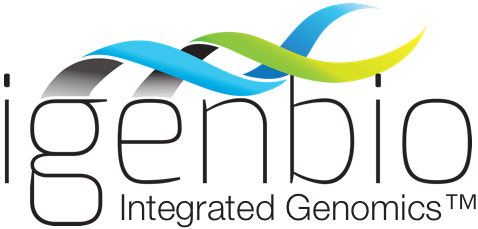Integrated Genomics’ and NIH research reveals secrets of emerging pathogenic acetic acid bacterium, Granulibacter bethesdensis
/Chicago, Illinois. Integrated Genomics announced the publication of the complete Granulibacter bethesdensisgenome sequence, the first acetic acid bacteria to be identified as an agent of an emerging invasive human disease.
Granulibacter bethesdensis is the first organism to be linked to chronic granulomatous disease (CGD), an invasive human disease resulting from a genetic defect in phagocyte superoxide formation. Complete genome sequencing, annotation and comparative analysis of G. bethesdensis by the scientific team at Integrated Genomics using the ERGO™ Genome Analysis Suite allowed scientists at the NIH in Bethesda, Maryland and Rocky Mountain Laboratory in Hamilton, Montana to identify the pathogenic and virulence factors in the genome. The project findings were published in the December 2007 issue of the Journal of Bacteriology. Other findings from the genome sequencing and analysis project included the identification of genes typical of the family, such as genes for converting alcohols to acetic acid, as well as novel functionality such as the in silico indication that methanol can be assimilated and used as a carbon source.
About the Laboratory of Human Bacterial Pathogenesis at RML
Originally founded in 1927 by the Montana Legislature as modern entomological laboratory in Hamilton, RML became a federal facility in 1937 and part of what is known today as the National Institute of Allergy and Infectious Diseases, a component of the National Institutes of Health. Research areas at RML include: the human genetics of susceptibility to infectious agents and the role of polymorphonuclear leukocytes in host defense; functional genomics of microbial pathogenesis using high-throughput genome sequencing and microarray expression analysis. The long-term goals of the laboratory include: understanding the fundamental molecular mechanisms of bacterial pathogen-host interactions, identification of the molecular basis of epidemics and pathogen emergence and re-emergence as well as develop new therapeutics, such as vaccines, for prevention of bacterial infections.
About Integrated Genomics
Integrated Genomics is a provider of bioinformatics products and services for the life science industry. The company’s expertise in microbial genomics includes genome sequencing, genome analysis and custom bioinformatics. Optimized for the analysis of micro-organisms, the ERGO™ Genome Analysis Suite integrates biological data from genomics, biochemistry, gene expression studies, genetics and literature. Reaching beyond conventional systems for functional analysis of DNA sequences, Integrated Genomics’ platform combines pattern-based analysis with comparative genomics that enables visualization of genes in the contexts of regulation, gene expression data, phylogeny, chromosomal neighbourhoods and identification of gene fusions. ERGO contains more than 1400 genomes at various stages of completion, as well as the largest available collection of networked cellular pathways.
Publications:
D. E. Greenberg, S. F. Porcella, A. M. Zelazny, K. Virtaneva, D. E. Sturdevant, J. J. Kupko III, K. D. Barbian, A. Babar, D. W. Dorward, and S. M. Holland. 2007. Genome sequence analysis of the emerging human pathogenic acetic acid bacterium Granulibacter bethesdensis. J. Bacteriol. 189:8727–8736)
Contact:
Vinayak Kapatral, Ph.D.
Vice President, Business Development
Integrated Genomics
312-491-0846 x 326
vinayak@integratedgenomics.com

